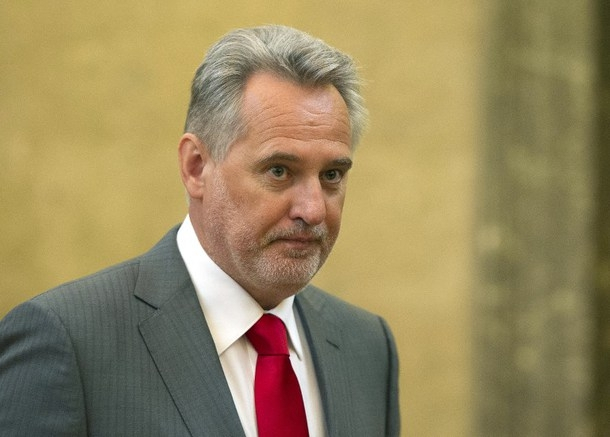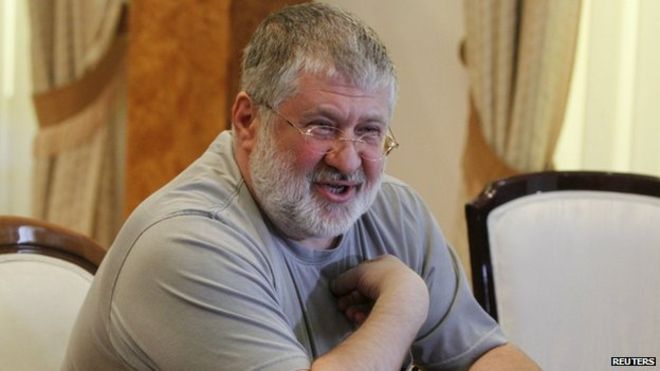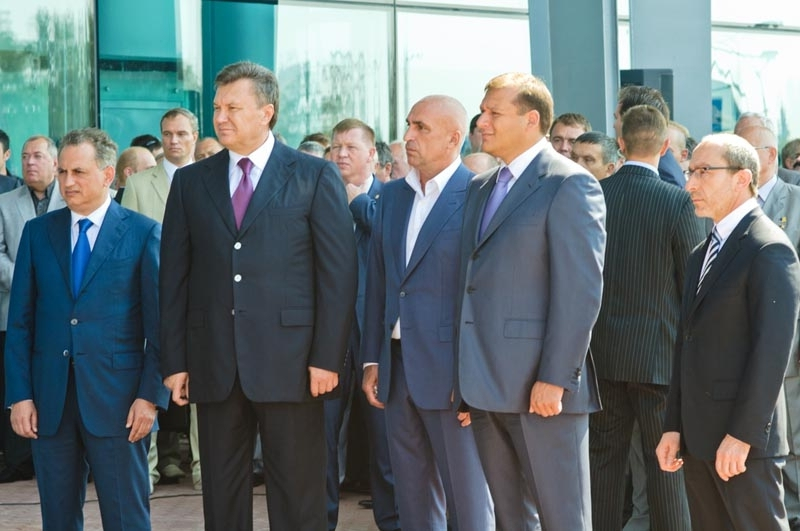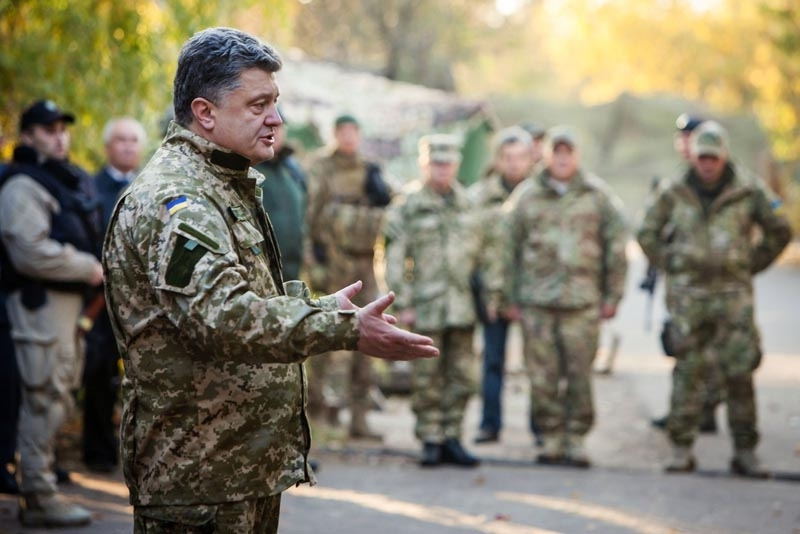The recent decision of an Austrian court to allow the extradition of Ukrainian oligarch Dmytro Firtash to the United States is a remarkable turn of events. What will be the political repercussions if Firtash faces the American court? There is reason to believe that both Russia and Ukraine fear his trial. Why does the case against Firtash have global importance?
Dmytro Firtash is a well-known figure in Ukrainian politics and business. In 2013 the Ukrainian Focus magazine declared him the fourth richest person in Ukraine. His business interests range from chemicals to media, but the basis of his wealth was trade in natural gas.
 Dmytro Firtash can be extradited from Vienna to the US (photo Wikimedia)
Dmytro Firtash can be extradited from Vienna to the US (photo Wikimedia)
Firtash is one of the so-called ‘oligarchs’: a class of Ukrainian entrepreneurs who have big influence on political decision-making, and thereby receive exclusive business preferences that allow them to extract boundless profits. As in Russia this class was formed in the 90’s and early 2000’s; thrilled by the possibilities of capitalism, new businesspeople, often connected to organized crime, took over profitable property via privatization mechanisms. They united into informal region- and interest-based groups.
The politicians in power received their share of wealth, in exchange for their consent on the oligarchs’ right to gain. The feeble and corrupt judicial system in Ukraine was unable and unwilling to prevent this consensus. With time, some of the old oligarchs were pushed out by their successors – also by informal means that had little to do with open competition. However, the system stood firm.
Oligarchs form different clans
Besides Firtash the major players are Ihor Kolomoiskyi, leader of the ‘Dnipropetrovsk clan’, oil and media magnate, and, until recently, owner of the largest Ukrainian bank, Privatbank; Rinat Akhmetov, leader of the ‘Donetsk clan’, coal and metal magnate; and Victor Pinchuk, industry, media and insurance oligarch, son-in-law of former president Leonid Kuchma.
 Ihor Kolomoiskiy, banker, oil and media mogul, after Maydan shortly governor of Dnepropetrovsk
Ihor Kolomoiskiy, banker, oil and media mogul, after Maydan shortly governor of Dnepropetrovsk
Firtash owned Centralgas Holding, a company that held a 50% share in RUE (RosUkrEnergo), while the other 50% belonged to Gazprom. RUE was an important player on the gas market in Ukraine. It managed the supply of Russian and Central Asian gas to Ukraine, its distribution inside the country and the transit to the West. As an opaque intermediary structure, RUE was frequently criticized for its non-transparent actions. Yulia Tymoshenko, prime minister in 2005 and in 2007-2010, in 2009 signed a gas supply contract with Russia that excluded RUE from the trade chain. That deal was allegedly concluded in her own interests. Tymoshenko’s companies, Bosfor and EESU, were in debt to the Russian state; there are claims that, to repay this debt, she signed the contract which hiked the gas prices for Ukraine to an unreasonable extent.
A Special Report from Reuters (2014) claimed that Firtash was able to build his fortune by exploiting a wide margin between the buying price of Russian gas and its selling prices inside Ukraine and in the EU. Firtash used his funds to support Victor Yanukovych, who was widely seen as a pro-Russian candidate, in the 2010 presidential elections.
In return for Yanukovych’s election, Firtash aimed to regain access to the gas market – which he achieved in 2011 through his Ostchem Holdings. Once again he made money by exploitation of the margins in the gas trade. By March 2011 the oligarch’s companies gained access to Gazprombank credit lines of up to $11bln. That same year Tymoshenko was imprisoned over a claim of abuse of power, in a case related to her 2009 gas deal with Russia – a deal that was a blow to Firtash’s profit margins. This was quite an illustrative case of interrelations between large business and politics in Ukraine.
 President Yanukovych with his Donetsk clan before Euromaydan
President Yanukovych with his Donetsk clan before Euromaydan
In the first months of Euromaidan, it seemed that, with support of the new western-backed reform-minded politicians, there was a chance to get rid of the oligarch system. However, the old institutes of informal control were quickly reinstated. Some in Ukraine claim that Poroshenko, himself an oligarch, owner of a large confectionary business, media and industry activa, is actually proceeding with the ‘de-oligarchization’ that he promised when he became president.
It is true that magnates as Kolomoiskyi, Akhmetov and Firtash recently were severely curbed in their power. Others, however, see this operation as a means for Poroshenko to concentrate more power in his own hands – in a fashion not dissimilar from Victor Yanukovych, who during his reign protected the interests of his own ‘Family’, a subgroup of the ‘Donetsk clan’.
Links with mafia bosses
Meanwhile, the business interests of Firtash went far beyond gas trade. In fact, some of them crossed Ukraine’s borders. He allegedly had ties to Semion Mogilevich – one of the most powerful Russian mafia bosses worldwide. In a conversation with the U.S. ambassador in Kiev, Firtash claimed that his only relation with Mogilevych was to obtain a permission for his business, as doing big business in Ukraine was impossible without consent from the criminal bosses. (Today, while Ukrainian big business and the criminal world apparently still co-operate, the balance of power seems to have shifted to the businesspeople – although often one cannot really distinguish the two.) Mogilevych, in turn, is reported to live freely and continue to operate in Moscow.
Apart from these ties to organized crime Firtash was accused of a money-laundering operation in real estate, conducted together with Paul Manafort – the campaign manager of Victor Yanukovych, who, years later, became the manager for Donald Trump’s election campaign. Both claim that the deal ‘never got off the ground’, but the allegations last year forced Manafort to resign from the Trump campaign.
In addition, there are claims that Firtash indirectly funded some members of parliament of the UK Conservative Party to secure his business interests in Great Britain.
In 2012 Firtash was indicted by a Chicago court on charges of bribing Indian state and government officials via American banks. The bribery was related to a mining project in the Indian state of Andhra Pradesh; minerals thus obtained were processed to fabricate ‘various titanium-based products’. This case had serious consequences for the Ukrainian oligarch.
In 2014 Firtash was arrested in Vienna on an FBI warrant, asking for his extradition to the United States. He was bailed out and stayed in Austria, to fight exhausting judicial procedures. In 2015 the regional court in Vienna stipulated that the American claim against Firtash was politically motivated and refused to allow his extradition. In particular, the defense pointed to the fact that the initial U.S. request to arrest Firtash, issued in October 2013, coincided with the refusal of Yanukovych to sign the EU-Ukraine Association Agreement. After that thousands of protesters went to Maidan square.
Link with Kremlin
The ruling from 21 February 2017 changes the game: the court gave permission for his extradition to the United States. At the same moment Firtash was detained over a money-laundering claim from Spain, which, in turn, wants the oligarch to face the Spanish court. This likely will result in another long court procedure regarding the validity of the Spanish claim. The final decision on his extradition will be taken by the Minister of Justice of Austria. Meanwhile, Firtash is out of jail, but is obliged to stay in Vienna.
Interestingly, the Russian pro-governmental newspaper, Izvestia, suggested that extradition might prompt Firtash to unveil facts regarding Russia’s meddling in Ukraine in a plea bargain. Earlier, Bloomberg suggested that Firtash could provide information on the Kremlin’s corruption ties. This is the political aspect of the case of the Ukrainian oligarch.
As mentioned, Firtash previously backed Yanukovych and his Party of Regions. But in early 2014, as it became clear that the regime was bound to fall, the media controlled by Firtash and his business partner Serhii Lyovochkin – in particular ‘Inter’, the most popular TV channel in Ukraine) switched sides. They started to support Petro Poroshenko and, in fact, have strongly contributed to his victory in the presidential elections of May 2014.
 President Poroshenko as army commander
President Poroshenko as army commander
There is a likely connection between this switch and a March 2014 meeting between Poroshenko, Firtash and the current Kiev mayor and former boxer Vitalii Klychko in Vienna. The oligarch himself claims that at that meeting they reached certain agreements for the 2014 electoral campaign, aimed at preventing Yulia Tymoshenko to return to power. As Firtash himself later openly stated in court: ‘We achieved what we wanted: Poroshenko became president, and Klychko mayor [of Kyiv].’
In this way Firtash blocked his eternal rival Tymoshenko from power and apparently, due to the agreement with Poroshenko, his businesses suffered less than that of other oligarchs during the last years. Yet it increasingly seems that Poroshenko, aimed at concentrating as much political power and financial influence as he can in his own hands, no longer needs Firtash. As a result, the oligarch’s media switched sides again: they now support Poroshenko’s opponents, as well as, in an unexpected twist, his long term rival Yulia Tymoshenko, populist leader of the Fatherland party.
It is very likely that Firtash, as a long-time partner of Russia in gas trade and a beneficiary of Russian state preferences, has a lot to share about Putin’s deeds. Putin is considered to be in control of Gazprom’s actions that have a political dimension, and trade with Ukraine is surely among them. But it is assumed that Firtash has kompromat on Poroshenko as well.
When faced with the threat of spending the rest of his life in an American or Spanish prison, he might start talking. It is therefore likely that both Russian and Ukrainian leaders prefer Firtash to stay in the Vienna limbo for an indefinitely long time – while his once overwhelming influence in Ukraine bit by bit withers away. But the Americans seem to have plans of their own. They have lots of questions for Mr. Firtash – that is: if Trump will not simply decide to let the former partner of his former ally Paul Manafort of the hook.
